Creating a standout blog in a crowded online world is a challenge, but it's not an impossible one.
With the right strategies and a unique approach, you can make your blog shine brightly among the countless others vying for attention.
In this comprehensive guide, we will explore various techniques to help your blog stand out and attract a dedicated readership.
Unearth Your Unique Selling Proposition (USP)
To make your blog truly stand out, you need to identify what sets it apart from the competition.
Your Unique Selling Proposition (USP) is the special quality or feature that distinguishes your blog in the minds of your target audience.
Start by researching your niche and analyzing your competitors.
Determine what they are doing well and where they might be falling short.
Look for gaps or areas where you can offer something different or better.
For instance, if you run a blog about Mexican recipes, you might discover that while many blogs cover the basics, there is a lack of content on healthy Mexican recipes or kid-friendly options.
These gaps could become your USP.
What Is the Competition NOT Doing?
Look at blogs that post on topics similar to you.
What are they NOT doing that they should or could be doing?
Whatever that is, YOU do it.
Let’s say you run a blog that covers Mexican recipes.
You look at similar blogs and you both have a recipe archive categorized by ingredient, you both use large, well taken photographs and you both make it easy to print or save your recipes.
If you were looking for Mexican cooking, what would you want to see that the other blogs are NOT doing?
Be creative.
Perhaps a review of Mexican restaurants in your area?
Perhaps expand into Mexican culture posts or Mexican decor or crafts?
Perhaps you can include two versions of you recipes.
One could be for those who like Mexican foods but need a milder version of the dishes.
You want it to be different remember, but still helpful.
Long Tail Keywords and SEO Optimization
To increase your blog's visibility and attract more readers, you need to optimize it for search engines.
A crucial aspect of this is using long-tail keywords (LTKs).
These are longer and more specific keyword phrases that users are likely to search for.
For example, instead of targeting the broad keyword "Mexican recipes," you could focus on LTKs like "healthy Mexican recipes," "Mexican dessert recipes," or "Mexican recipes for kids."
These LTKs are less competitive, making it easier for your blog to rank higher in search engine results.
Use tools like the Google AdWords Keyword Planner to identify relevant LTKs for your niche.
Incorporate these keywords naturally into your blog posts, headings, and meta descriptions to boost your SEO efforts.
Using the Keyword Tool to your Advantage
You can even use the Google Adwords Keyword tool to help you think of things.
It will tell you what people are searching for related to your topic.
Pay attention to those LTKs.
Just type in your topic in and click search.
You can ignore the rest of it.
If you login to your Google account you won’t have to submit a CAPTCHA code first, (those random strings of letters and numbers you have to enter correctly before you can submit.)
When you search, you will be given a list of keyword ideas that are similar to what you inputted.
This is where you can get some ideas.
Change the word/phrase and search again to get more ideas.
For example from the above, healthy Mexican recipes or Mexican dessert recipes stand out.
Is my blog competition covering those topics?
If not, perhaps I want to do more of those recipes.
To stand out more, I could offer a free e-book on email subscription of Mexican dessert recipes.
Or perhaps I can go the extra mile and once a month, have my readers vote on an ingredient, and then I have to create a healthy Mexican recipe using that ingredient for the next month.
A search for Mexican food gives me more ideas (see below.)
Perhaps I can post about a Mexican/Spanish food ingredient once a month and feature recipes with that ingredient all month.
I could keep a page on my blog of all past ingredient posts and the recipes that go with it.
Instead of just grouping my recipes and tagging by ingredient like my competition, I would be educating readers about the foods.
For example a post on avocado could include history and where it grows, how to choose one in the store, how to store it, cut it and use it.
Offer Unique Content and Features
One of the most effective ways to make your blog stand out is by delivering exceptional content.
Strive to provide value that exceeds the expectations of your audience.
Consider the following ideas:
- In-Depth Guides: Create comprehensive guides or tutorials that delve deep into specific topics within your niche. These authoritative pieces can establish you as an expert in your field.
- Original Research: Conduct your research and share unique findings. Whether it's surveying your audience or analyzing industry data, original research can set your blog apart as a source of valuable insights.
- Multimedia Content: Incorporate various content formats such as videos, podcasts, infographics, and interactive elements to engage your audience in different ways.
- Interactive Features: Develop tools, quizzes, or calculators that cater to your niche. These interactive features can keep visitors engaged and encourage them to return to your blog.
- User-Generated Content: Encourage your readers to contribute content, such as guest posts or user-generated reviews. This not only diversifies your content but also fosters a sense of community.
Consistent Branding and Design
Your blog's branding and design play a crucial role in making it memorable and distinctive.
A well-designed blog with a consistent visual identity can leave a lasting impression on your audience.
Here are some key elements to consider:
- Logo and Color Scheme: Create a memorable logo and choose a color scheme that reflects your brand's personality. Consistently use these elements across your blog, social media profiles, and promotional materials.
- Typography: Select fonts that are easy to read and align with your brand's style. Maintain consistency in font usage throughout your blog.
- Layout and Navigation: Ensure that your blog's layout is user-friendly and intuitive. Make it easy for visitors to navigate your content, find information, and access essential features.
- Mobile Responsiveness: With the increasing use of mobile devices, it's vital to have a responsive design that adapts to various screen sizes. This enhances the user experience and keeps visitors engaged.
- Unique Features: Consider adding unique design elements or features that align with your niche. For instance, if you blog about travel, you might incorporate an interactive map highlighting your destinations.
Engage with Your Audience
Building a loyal readership involves more than just creating great content.
You must actively engage with your audience and foster a sense of community.
Here are some ways to achieve this:
- Respond to Comments: Encourage comments on your blog posts and respond to them promptly. Engage in meaningful discussions with your readers to build relationships.
- Social Media Presence: Maintain an active presence on social media platforms relevant to your niche. Share your blog posts, interact with followers, and participate in discussions.
- Email Newsletter: Create an email newsletter to keep your subscribers updated on your latest content and industry news. Personalize your emails to connect with your readers on a deeper level.
- Live Events and Webinars: Host live events, webinars, or Q&A sessions related to your niche. These interactions can strengthen your connection with your audience.
Collaborate and Network
Building relationships within your niche can significantly enhance your blog's visibility and credibility.
Consider these collaboration and networking opportunities:
- Guest Blogging: Write guest posts for other blogs in your niche. This can expose your blog to a broader audience and establish you as an authority in the field.
- Interviews: Conduct interviews with experts or influencers in your niche. They may share the interview on their platforms, increasing your blog's reach.
- Partnerships: Collaborate with complementary businesses or bloggers for joint projects, giveaways, or promotions. These partnerships can introduce your blog to new audiences.
- Attend Conferences and Events: Participate in industry-related conferences, seminars, or meetups. Networking at these events can lead to valuable connections and opportunities.
Use Your Own Experience
Think of the blogs that stand out as unique in YOUR mind.
What about them do you think it is?
Sometimes a blog can stand out even though you don’t like the blog too.
Remember though, standing out isn’t everything, you need to connect with your readers and provide quality content as well.
What blogs stand out for me?
Parenting Illustrated With Crappy Pictures – I think it’s obvious why this stands out. There are other blogs that talk in an off sort of way about their kids, but this is the only one that does it with stick figure pictures.
Cake Wrecks – I’m not up on any other cake blogs that might be out there but I’m pretty sure I’ve never heard of another one that shows the bad side of cake decorating. I’d much rather see these than watch those that make good cakes like Cake Boss and such.
Awful Library Books – This one makes me laugh. It showcases old and poorly written or designed books found in actual libraries. Like this one about baby names.
What blog stands out for you?
Consistency and Persistence
Finally, remember that building a standout blog takes time and persistence.
Consistency is key in creating a reliable and trustworthy online presence.
Stick to a content schedule, maintain your branding, and continue refining your blog based on feedback and data.
In conclusion, making your blog stand out in a crowded online landscape requires a combination of unique content, effective SEO strategies, strong branding, audience engagement, and networking.
By continuously improving and delivering value to your readers, your blog can rise above the competition and become a go-to resource in your niche.
So, go ahead and put these strategies into action, and watch your blog shine brighter than ever before.
Empowering Your Blog's Success: Frequently Asked Questions (FAQ)
Q: What's the secret sauce for making my blog truly stand out in a sea of competitors?
A: The secret sauce, if you will, involves a combination of factors. Firstly, let your unique voice shine through your content. Share your perspective and personality—it's what makes you, well, you. Secondly, strive for exceptional content. It should be informative, entertaining, or both, and it should offer real value to your readers. Lastly, effective marketing is crucial. Share your content on social media, engage with your audience, and don't shy away from networking in your niche.
Q: I hear a lot about finding my blog's "Unique Selling Proposition" or USP. How do I go about discovering that?
A: Finding your USP is like discovering your blog's superpower. Start by identifying your passion—what gets you excited? Next, leverage your expertise—what do you know like the back of your hand? Finally, pinpoint what sets you apart from others in your niche. Maybe it's your personal journey or a unique angle you bring to the table. Once you've got these elements, mold your content around them, and voilà, you've found your USP.
Q: I've heard about long-tail keywords. Can you explain how they can help my blog stand out?
A: Absolutely! Long-tail keywords are like the secret handshake of the blogging world. They're longer, more specific phrases that people search for, like "best hiking trails in California for beginners." Since they're more precise, there's less competition, making it easier for your blog to pop up in search results. So, incorporating these keywords into your content and meta descriptions can significantly boost your blog's visibility.
Q: Any creative content ideas to help my blog shine brightly?
A: Oh, absolutely! Think of your blog as a canvas for your creativity. Consider interactive features—quizzes, polls, or calculators that engage your readers. Spice things up with multimedia content—videos, podcasts, and infographics can make your blog more captivating. Original research is another gem—share unique findings or insights. These creative touches can set your blog apart from the rest.
Q: Engaging with my readers sounds great, but how can I build a strong connection with them?
A: Building that connection is like nurturing a friendship. Start by responding to comments on your blog—engage in genuine conversations. On social media, share behind-the-scenes glimpses and interact with your followers. Consider hosting live events or Q&A sessions to bring your readers closer. Make them feel like they're part of a community, not just visitors to your blog.
Q: You mentioned consistent branding. How can that help my blog stand out?
A: Consistent branding is like the glue that holds your blog's identity together. It makes you easily recognizable and trustworthy. Choose a memorable logo and color scheme. Stick to a consistent typography style. Maintain a user-friendly layout, and ensure your blog is mobile-responsive. All these elements combined create a cohesive and professional image that stands out in readers' minds.
Q: I've heard about networking and collaborations. Any tips on how to go about that?
A: Networking and collaborations are like the secret passages to blogging success. Start with guest blogging—write posts for other blogs in your niche to get your name out there. Conduct interviews with experts or influencers—they might share the interview with their audience. Seek partnerships with complementary businesses or bloggers for joint projects and promotions. Attend industry events and seminars to meet like-minded bloggers—it's all about building those valuable connections.
Q: How does user-generated content play a role in my blog's growth?
A: User-generated content is like having a team of co-authors for your blog. It can include guest posts, reader-contributed reviews, or even discussions in your comments section. This diverse content enriches your blog, brings in different perspectives, and fosters a sense of community among your readers. Plus, it's a win-win—you get fresh content, and your readers feel more involved.
Q: Maintaining consistency and persistence sounds challenging. Any tips on staying on track?
A: It's like tending a garden. Stick to a content schedule—it helps maintain your blog's momentum. Continuously refine your strategies based on feedback and data. Don't just focus on short-term gains; keep your long-term goals in mind. Blogging is a marathon, not a sprint, so consistency and persistence are your trusty companions.
Q: Are there any recommended tools for keyword research that can make my job easier?
A: Absolutely! Tools like Google Keyword Planner and SEMrush are like treasure maps for keywords. They help you discover relevant keywords and understand their search volume. Armed with this data, you can incorporate these keywords naturally into your blog posts and meta descriptions, helping you improve your SEO and stand out in search engine results.
Q: How can I measure if my blog is making a real impact and standing out?
A: Think of it like a dashboard in a car. Monitor Google Analytics to track your blog's performance—page views, engagement, and conversion rates. Pay attention to comments and feedback from your readers. Are they sharing your content? Are they coming back for more? Seeking feedback from your audience is like having a GPS for your blog's journey—it guides you toward success.
Q: Should I be prepared to invest money to make my blog stand out?
A: While some investments can certainly help, it's not just about money. Dedication, strategic planning, and consistent effort are equally—if not more—important. Many successful bloggers started with minimal budgets but thrived through hard work and smart decisions. So, don't be discouraged if you're on a tight budget; it's more about your commitment and creativity.
Q: In a fiercely competitive niche, how can I differentiate my blog effectively?
A: It's like finding your own rhythm in a dance. Explore unique angles, delve into niche subtopics that others might overlook, or address unmet audience needs. By offering something different and filling gaps, you'll naturally carve your niche and stand out.
Q: I've heard storytelling can be powerful. How can it enhance my blog's appeal and distinctiveness?
A: Storytelling is like adding color to a black-and-white canvas. It creates a deeper connection with your readers by engaging their emotions. Share personal anecdotes, experiences, or even stories related to your niche. A well-told story can make your content more relatable and memorable, setting your blog apart in readers' minds.
Q: Can you provide examples of blogs that have successfully stood out in competitive niches?
A: Sure thing! Consider blogs like "Parenting Illustrated With Crappy Pictures," which uses stick figure drawings to bring humor to parenting. "Cake Wrecks" showcases the humorous side of cake decorating gone wrong. Each of these blogs found a unique angle in their competitive niches and gained a dedicated following.
Blogging Tips And Tricks
Boosting Engagement: Harvesting Connection with Autumn-Themed Blog Challenges
Boost engagement by infusing authenticity into your autumn content. Explore niche-specific challenges and nurture lasting connections.
Mapping Out Your Fall Content Calendar: A Blogger's Guide
Plan your perfect blogging season with a Fall Content Calendar. Craft, cook, and captivate your readers all autumn long.
Free or Premium Stock Photography from Dreamstime.com
Dreamstime free and premium stock photos help bloggers create professional, polished content with flexible options, quality images, and ease.
Online Tools for Bloggers You Might Not Know About
Discover essential tools for bloggers! Explore Blog Social Analyzer, NameChk, and Dark Room - enhancing your blogging journey.
Increasing Blog Productivity
Boost Your Blog Productivity with Actionable Tips and Resources for Working from Home. Get More Done Today!
How To Manage Time Effectively
Learning how to manage time effectively is important for successful blogging. These time management tips are sure to help you succeed.



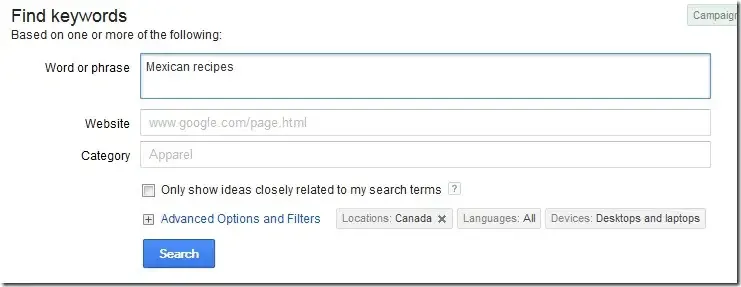
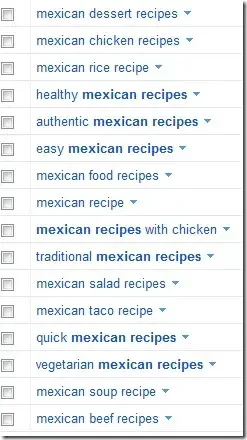
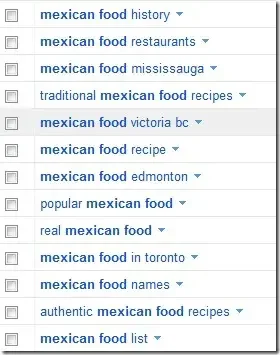

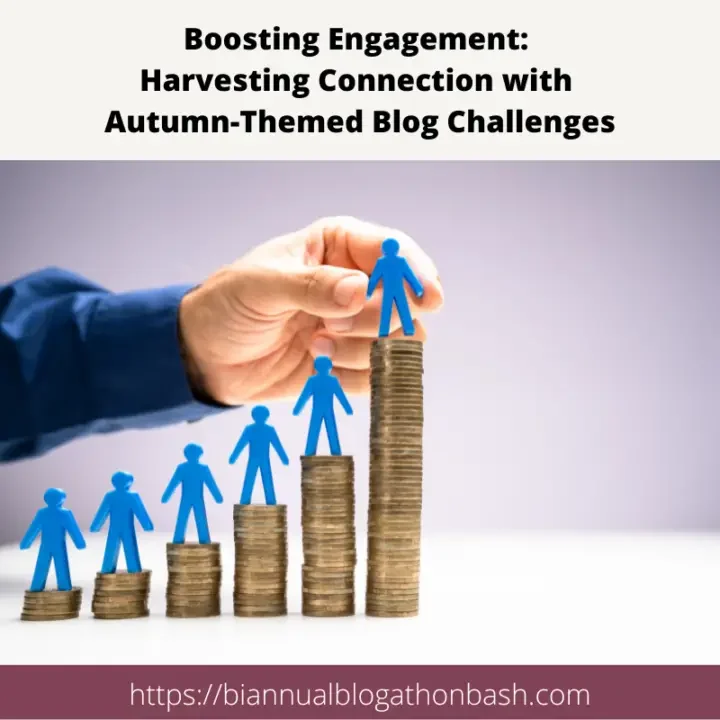


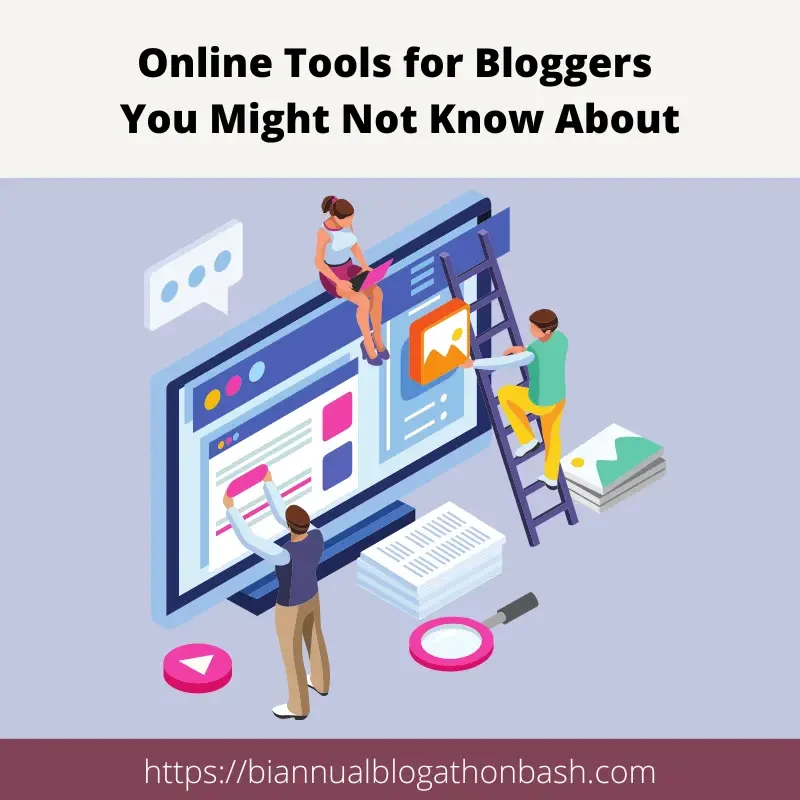


Kat
Thursday 9th of May 2013
Awesome post! I totally agree with long tail keywords -- they're so important! Also, an easy to remember URL stands out for me. I may find a great blog, but if I can't remember the URL, I may forget to follow you.